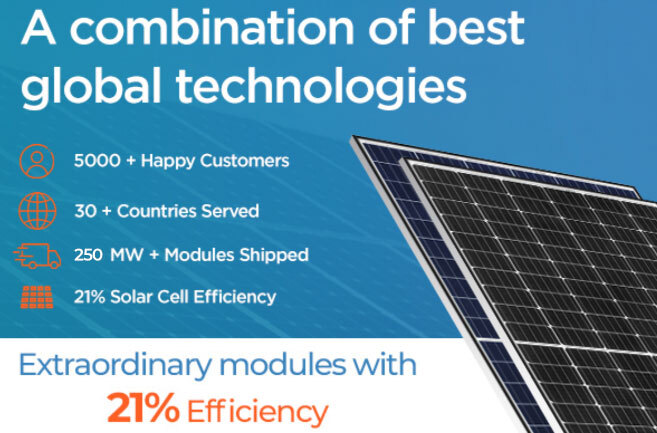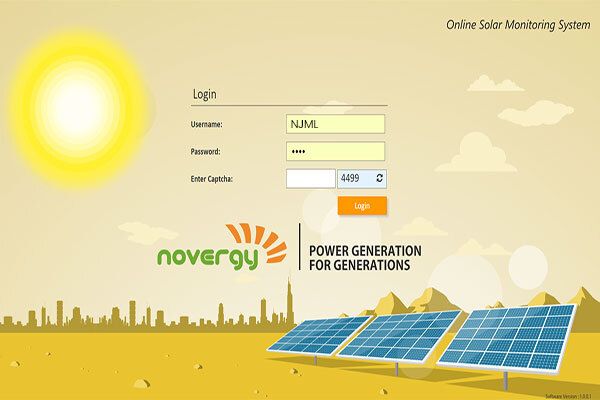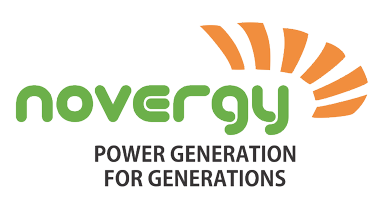Solar panels, also known as photovoltaic (PV) panels, are meant to last for more than 25 years. Many solar panels installed in the 1980s are still producing full capacity. Solar panels are not only extremely reliable, but their longevity has increased dramatically over the last 20 years, but their lifespan has risen substantially in the previous 20 years.
Solar panels have the advantage of requiring relatively little maintenance. Regular solar panel cleaning is usually not necessary unless your area is particularly prone to dust, filth, pollen, or sand as a result of its arid climate.
Despite the fact that solar panels are relatively low-maintenance, they must be maintained and monitored on a regular basis.
Let’s look at how to enhance the capacity of your solar panel, as well as best practises for keeping your solar panels healthy and safe.
How to Increase the Capacity of your Solar Panel
Commercial solar panels cost a lot of money for many firms. However, some people aren’t doing enough to keep their solar panels as efficient as possible during their lives. As a result, their panels don’t produce as much energy as they should, which costs the company money.
Businesses may do a number of things to keep their solar panels running efficiently. Here are our top six tips for increasing commercial solar panels efficiency and obtaining the highest potential electricity output.
-
Purchase one of the more energy-efficient solar panels.
Photovoltaic cells are found in solar panels and are responsible for converting solar energy in the form of sunshine into useful power.
A solar panel can’t convert all of the solar energy it absorbs into electricity.
As a result, a panel’s efficiency is the proportion of energy that hits the panels that is converted into electricity by the solar cells.
Novergy Solar Panels are very energy efficient and will help in better electricity production.

-
Panels with High Concentrated Photovoltaic (CPV) Cells should be purchased.
With the use of an optical instrument, a huge area of sunlight is focused onto the solar cell in Concentrating Photovoltaics (CPV). This technology offers three competitive advantages since it concentrates sunlight onto a tiny area:
-Requires less photovoltaic material than non-concentrating pv to capture the same amount of sunlight.
-Due to the decreased space requirements, the utilization of high-efficiency but expensive multi-junction cells becomes economically viable.
– The optical system is made up of common materials that have been fabricated using tried and true methods. As a result, it is less reliant on the nascent silicon supply chain. Optics are also less expensive than cells.
Traditional solar panels have a maximum efficiency of 22 percent, however CPV panels have a maximum efficiency of 46 percent!
-
Solar panels should not be installed in shady places.
Solar panels create power from sunshine, it’s only natural that shade reduces the amount of electricity produced. Many individuals, however, are unaware of the impact of shade on a line of solar panels.
Even a single shaded solar cell can have an impact on the energy generated by its neighbors. This is due to the fact that it functions as a resistor.
When it comes to shadowing solar panels, tall trees and other structures are the two most common culprits.
Make sure you spend time analyzing a location throughout the planning stage to guarantee that shade won’t be an issue.
-
Solar panels should be cleaned regularly.

Solar panels require very little maintenance. However, it’s a good idea to clean your solar panels on a regular basis because dust and debris can build up on the surface and reduce efficiency.
The frequency with which you should clean your solar panels is determined by a number of factors, including how often it rains and how dirty it can become over time.
-
Using energy management software to track the output of your solar panels.

Some firms install solar panels and then forget about them once they’re satisfied with the initial production levels. This is an issue since you won’t notice if your solar panels’ efficiency diminishes if you don’t keep track of how much electricity they produce.
One approach to keep track of your generation levels is to connect your solar panels to energy management software. This allows them to track their output over time and see any unexpected drops.
Best practices to keep your solar panels healthy and safeguard your solar panels
Solar panel systems have a long lifespan and require little upkeep. Regular checkups, on the other hand, will save you money in the long run by preventing costly repairs and keeping your panels looking clean and shining.
To maintain your solar panel system, it’s a good idea to be familiar with each solar component. To attach the panels to your roof, you’ll need racking and roof penetration.
Equally vital are the wiring and inverters that connect your panels to your home’s electrical system and grid. The system is simple to grasp, and knowing how it works will come in handy if you need to perform any repairs.
- Look out for dirt and debris.
Solar panels do not require frequent cleaning. Any dust will be washed away by the infrequent rain, and snow will melt faster on the panels than on the rest of the roof. However, it’s a good idea to check the panels every few months to make sure there’s no dirt, snow, or leaves left on them. If there is, a light hose rinsing should take care of the problem.
- Keep an eye out for roof and rack penetrations.
Racking guarantees that your solar panel system is properly installed on the roof. The bolt penetrations help to support the weight of your solar panels while also ensuring structural integrity. These systems have been thoroughly tested to assure their endurance and quality. If you find any leaks, contact your installer right once to get them fixed. These problems are frequently covered by warranty; do not try to fix them yourself!
- After Severe Weather, Check the Panels
Broken panels can occur as a result of severe storms and rainfall. Broken glass will definitely have a negative impact on your solar panel system’s performance. Checking the visual appearance of the panels or monitoring their functionality online can quickly discover faults with the system.
- Keep an eye on the software management
Most solar systems have unrestricted online monitoring, allowing you to track the system’s performance on a daily, weekly, and monthly basis.
It’s a good idea to check online monitoring at least once every few weeks, and many homeowners love reviewing systems on a regular basis to see what output they’re producing. Regular inspections guarantee that you can detect any minor issues and submit them to your installer for repair.
- Create and stick to a cleaning schedule.

Dirt and dust, sand and grit, bird and other animal droppings, tree leaves, and seasonal pollen are all items that can obstruct the performance of your solar panels.
Even a minor obtrusion of the solar panels’ surface area will affect their ability to gather and create effective energy.
Early on, establish a regular maintenance schedule to help you establish and keep a consistent routine.
Look for maintenance alternatives that provide clients with routine solar panel servicing.
You can still benefit from maintenance packages that are specifically designed to reduce the cost of panel maintenance by providing direct access to equipment warranties.
- Examining Energy Consumption
Because your net metering agreement with the local utility company will show you how much energy you’re selling back to the grid, you may not feel the need to examine your personal energy usage. The disadvantage of only relying on their figures is that you aren’t physically assessing the energy production of your panels. Installing an energy monitor is the simplest approach to ensure that your entire system is running well.
To Conclude
Talking about a great service provider such as Novergy, provides long-term guarantees that cover any defects. Solar panels and inverters have warranties of about 25 years and 10 years, respectively.
The solar energy storage system also comes with a 10-to-25-year warranty. Although there are guarantees in place to cover any incidents, it is important to understand that they do not cover negligence. As a result, it is critical to keep the solar panel system in good working order. Solar panel system maintenance procedures help to boost and sustain the panels’ output.
As a result, double-check that the batteries, inverters, cables, regulators, and power metres all function properly. You can perform the maintenance procedures on your own or work with us to find a solar cleaning service provider.
Power plants, rooftop and captive power systems, solar lighting solutions, pumping solutions, solar telecom systems, solar microgrid, solar genset hybrid systems, and other solar solutions are available from Novergy. Our team believes in thoroughly assessing each project need before recommending the best solution in the customer’s best interests.
BIPV solar panels are our specialty. Their BIPV solar panels are designed to generate more power per square metre, even in low-light settings, and come in a variety of configurations to meet your specific needs.
With its improved features, our Twin Peak solar panels generate 60% more energy, making them a popular choice among consumers.

